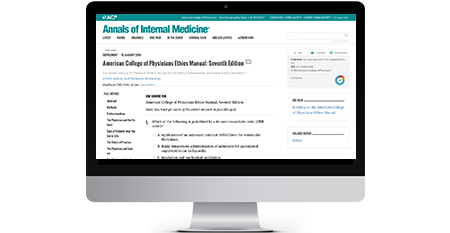ACP Ethics and Professionalism
Early in the COVID-19 pandemic unprecedented restrictions on allowing visitors in medical settings were deemed necessary to protect patients and healthcare workers (HCWs) in the face of a novel pathogen with unknown transmission risks, high morbidity/mortality, overwhelmed healthcare systems, and limited personal protective equipment (PPE). As time went on, however, clear evidence emerged regarding the unintended harms of visitor restrictions, while evidence demonstrating the necessity of such restrictions for protecting the health of patients and HCWs remained lacking (1). Even now, many visitor policies are not as accommodating as they were pre-COVID, threatening patient- and family-centered care and raising ethical concerns about determining the proper balance between protecting public health and fulfilling clinicians’ ethical obligations to individual patients (1,2). ACP’s Center for Ethics and Professionalism examines this topic in their latest case study, ‘“Why Can’t I Be There?” Ethics Regarding Restrictions on Visitation/Family Caregiver Presence’
First, read the case study. After reading, ACP members can take the CME/MOC survey for free.


